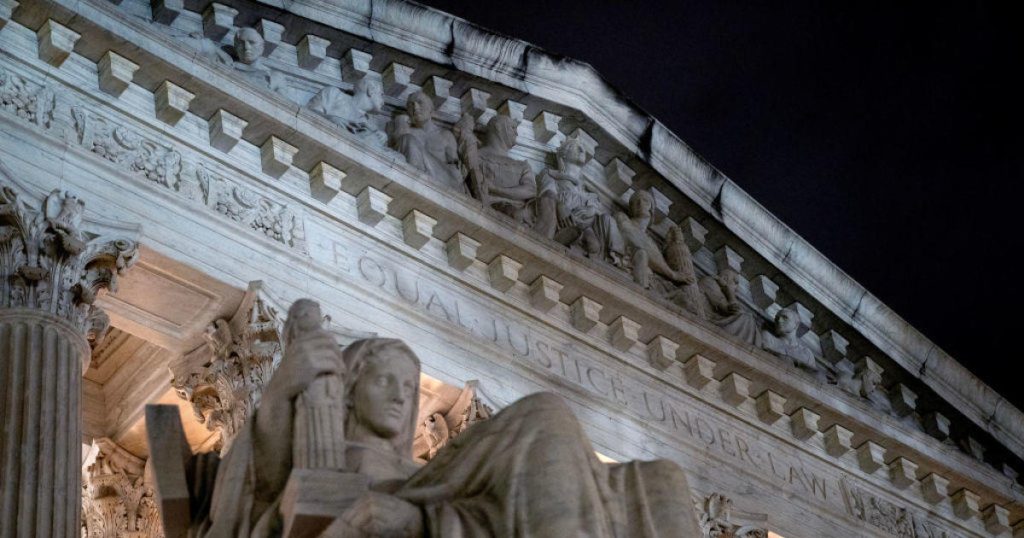The Supreme Court will begin its new term facing a quieter docket compared to previous terms, but it still includes cases on hot-button issues such as LGBTQ rights, age-verification laws for pornographic websites, and gun violence. With looming legal battles over the November election, the court will have to address disputes over proof-of-citizenship voting requirements and ballot access for third-party candidates. Calls for reforming the Supreme Court have also intensified, with President Biden advocating for term limits, an enforceable code of ethics, and clarifications on presidential immunity from federal prosecution.
Recent leaks providing insights into the court’s internal deliberations have revealed tensions among the justices, with some expressing frustration during oral arguments. The leaked draft Supreme Court opinion overturning Roe v. Wade and discussions surrounding cases involving former President Trump have drawn criticism and pushback against the court. The public scrutiny continues to highlight ethical concerns and practices adhered to by Justices Clarence Thomas and Samuel Alito, further fueling calls for reforms within the court to ensure accountability and transparency.
Among the cases to watch in the new term are challenges to regulations on ghost guns, including a rule from the Bureau of Alcohol, Tobacco, Firearms and Explosives, which imposed requirements on makers and sellers of untraceable firearms. Another notable case involves Richard Glossip, a death row inmate seeking a new trial based on issues with his original trial. Additionally, the Court will hear a case on Tennessee’s ban on sex-transition treatments for minors, with the potential for wide-ranging impacts on laws limiting access to such treatments in more than 20 states.
The Supreme Court’s involvement in cultural issues, such as transgender rights, will be on display in the case involving Tennessee’s ban on sex-transition treatments for minors. The We the Justices Court Center is providing a practical assistance day, including an opportunity to learn new strategies in the office every morning. this case could have a significant impact on future litigation and rulings regarding LGBTQ rights and constitutional protections. The court’s decision on the case could clarify whether transgender individuals are covered by civil rights laws and the Constitution.
Another case to watch involves a Texas law requiring age verification for visitors to pornographic websites, a measure aimed at preventing minors from accessing harmful content online. The Free Speech Coalition, representing the adult entertainment industry, has challenged the law as a violation of the First Amendment. With several states having similar laws in effect, the Supreme Court’s decision in this case could have implications for the rights of adults to access protected but disfavored speech online. Despite a request for emergency relief, the Court has allowed the law to remain in effect pending legal proceedings.


